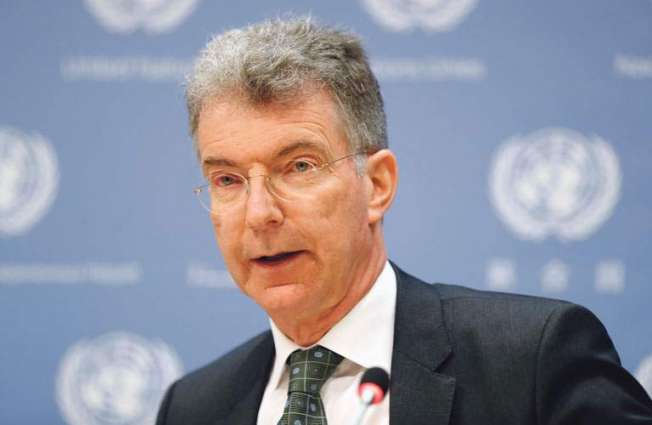The future chairman of the Munich Security Conference, German diplomat Christoph Heusgen, called the Holodomor, a famine in Soviet Ukraine in the 1930s, a genocide allegedly organized by the government of Joseph Stalin
BERLIN (Pakistan Point News / Sputnik - 28th December, 2021) The future chairman of the Munich Security Conference, German diplomat Christoph Heusgen, called the Holodomor, a famine in Soviet Ukraine in the 1930s, a genocide allegedly organized by the government of Joseph Stalin.
Earlier in December, the Ukrainian parliament asked the German Bundestag to recognize the famine as a genocide of the Ukrainian people. In turn, the upper house of the Russian parliament said that it was unacceptable "to arrogate the nationwide, all-Soviet tragedy of the mass famine" only to the Ukrainians, since it also engulfed many other agricultural regions of the country. The Russian side also stressed that there is no document confirming that the Holodomor in Ukraine was a genocide or containing a hint of ethnic motives.
"Stalin only exploited Ukraine and suppressed its will to freedom in the 1930s through the deliberately provoked famine. The Holodomor was described as a genocide, several million people died," Heusgen said in an interview with the German RND media group.
He added that the current Russian authorities allegedly considered Ukraine a part of Russia and were not interested in a democratic and economically stable Ukraine.
Meanwhile, Russia has steadfastly maintained the opposite. Lat week, Russian President Vladimir Putin stressed once again that Moscow would like to build "brotherly" relations with Ukraine and has done practically everything to achieve this. However, according to the Russian leader, it is practically impossible to attain that goal with the current Ukrainian leadership.
Holodomor refers to a famine in Ukraine in the 1930s, which also affected other regions of the former Soviet Union, including western Siberia, the northern Caucasus, Kazakhstan and Kyrgyzstan, and claimed the lives of up to 7 million people.




